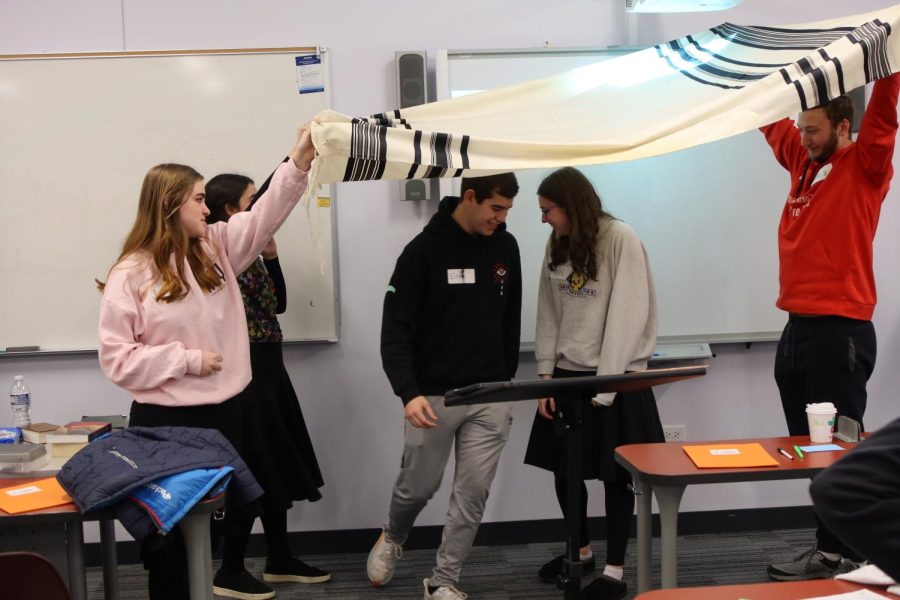Local antisemitism persists
Ninety Northbrook driveways received antisemitic flyers
While walking her dog one morning, business education teacher Mindy Ingersoll saw bags filled with rice containing antisemitic flyers scattered on driveways in her neighborhood on Aug. 9.
“I don’t know how to describe it,” said Ingersoll. “It’s very unsettling. It makes you feel very unsafe.”
According to Richard Rash, community relations supervisor at the Northbrook Police Department, antisemitic flyers were thrown onto 90 Northbrook driveways between midnight and 2 a.m. on three different days in June, August and September.
The International Holocaust Remembrance Alliance’s working definition of antisemitism is “a certain perception of Jews, which may be expressed as hatred toward Jews. Rhetorical and physical manifestations of antisemitism are directed toward Jewish or non-Jewish individuals and/or their property, toward Jewish community institutions and religious facilities.”
The American Jewish Committee, also known as AJC, sent out surveys in 2021 to assess the state of antisemitism in America, said Sarah van Loon, regional director of AJC in Chicago.
The AJC surveyed both the U.S. general public and Jewish individuals across the country to understand their perceptions, knowledge and experiences with antisemitism, van Loon said.
There were 2,717 reported antisemitic incidents across the United States in 2021, which is a 34 percent increase from the 2,026 incidents recorded in 2020, van Loon said.
“Our studies have shown year over year that antisemitism is increasing and non-Jewish individuals in particular are increasingly the targets of antisemitism,” said van Loon. “They’re the target of both physical attacks, verbal antisemitism, as well as attacks online and on social media.”
Kylie Cerk, communications specialist for the Village of Northbrook, said in an email correspondence that the Village of Northbrook combats antisemitism by having the police department and village staff participate in tolerance training to become aware and respond to instances of antisemitism.
“Most recently, the Mobile Museum of Tolerance came to the Northbrook Police Station for a week-long training and presentation on the effects of hate, hate speech, propaganda, tolerance and diversity,” said Cerk. “This presentation had a particular focus on antisemitism.”
In 2021, the Northbrook Village Board adopted a Welcoming and Inclusive Community Pledge that vows to support and serve all residents regardless of their background, which the Village of Northbrook promotes and encourages residents to sign.
Antisemitism can have a “chilling effect” on people’s ability to want to engage in Jewish activities, said Lonnie Nasatir, president of the Jewish United Fund.
Over the last three to five years, antisemitic people have felt more emboldened and empowered to demonstrate their antisemitism in ways that would not have been done 10 years ago, whether that be because of elected officials, the polarization of the country, social media or other reasons, Nasatir said.
According to junior Jordan Gelfeld, he educates the community on the Holocaust through his role on the Illinois Holocaust Museum & Education Center’s Teen Leadership Board.
“When someone comes out and says that what you believe in, what you’re doing is wrong, it hurts you,” said Gelfeld. “It makes you feel that you’re less than or you’re doing something that you’re not supposed to.”


